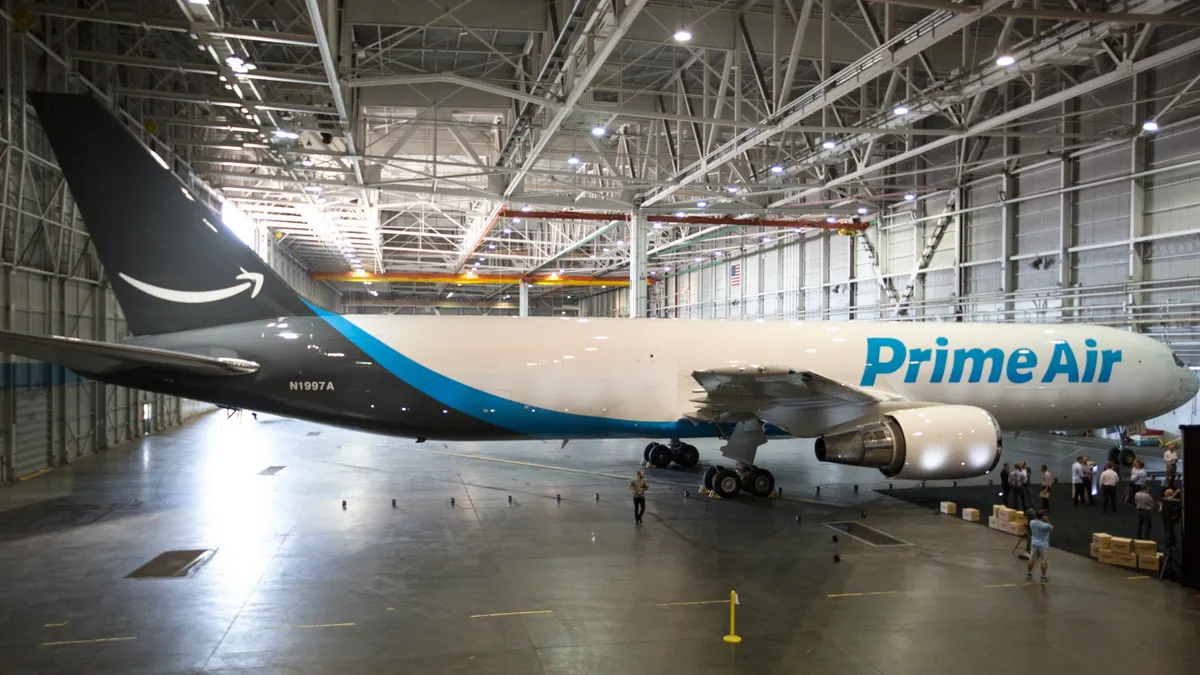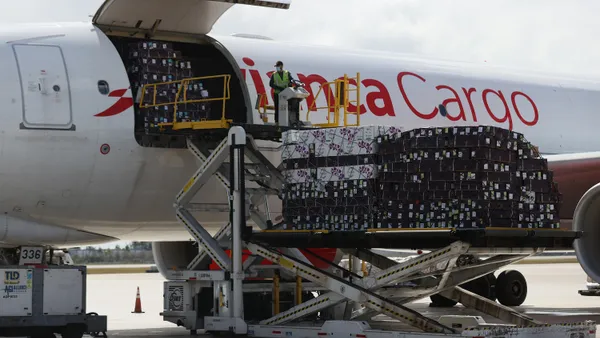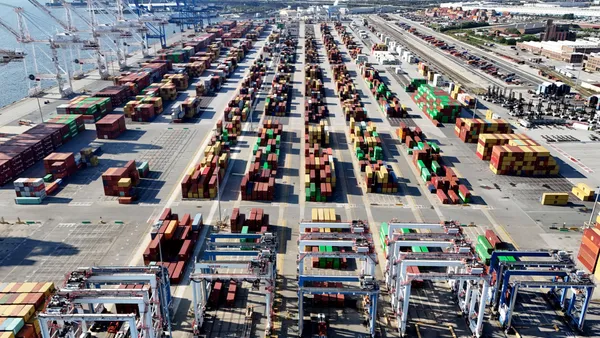Dive Brief:
- Morgan Stanley analysts warned Amazon Air is "encroaching" on UPS and FedEx air space. "We think the market is missing the risk Amazon Air poses to UPS/FDX growth," analysts wrote in a research note.
- The analysts expect Amazon Air to have a 200-300 basis point impact on UPS and FedEx domestic air volumes, "with more erosion expected as Amazon Air is built out."
- "There are a variety of assumptions in the Morgan Stanley report that we disagree with," a UPS spokesperson told Supply Chain Dive in an email. "We are confident in our strategies and believe there is tremendous opportunity for continued growth." FedEx declined to comment.
Dive Insight:
It seems each time Amazon makes a move to expand its supply chain operations, analysts and investors worry about the future of UPS and FedEx.
Morgan Stanley released the note a day after Amazon announced plans for an expansion at Chicago Rockford International Airport.
Both companies' stock prices dropped after the release of the analyst note. The market had a similar reaction this summer, when Amazon started recruiting small businesses for last-mile delivery services and ordered thousands of branded vans.
"We've written extensively on Amazon's build-out of its internal logistics network, but given Amazon's plans to take delivery of 40 planes and build an air hub that could potentially handle 100 planes, we've taken a closer look at the impact of Amazon Air," Morgan Stanley analysts wrote.
Amazon is building a $1.5 billion hub in the Cincinnati area, which will be operational by 2020 and completed five to seven years after that. Morgan Stanley predicts Amazon Air's ramp up could result in 10% potential revenue loss for UPS and FedEx by 2025.
Once built, the hub will be able to accommodate 100 aircraft and 200 daily flights, according to a note Armstrong & Associates sent to Supply Chain Dive. The capacity, however, is just 35-40% of UPS' total U.S. flight and sortation capabilities.
By comparison, UPS owns and leases more than 550 aircraft globally and flies more than 2,200 domestic and international flight segments daily. In addition, UPS' delivery operations expand beyond e-commerce orders, to a wide variety of shipments including healthcare and industrial products, the spokesperson said.
Both UPS and FedEx have spent years building massive infrastructure networks — and "Amazon still has a long way to go before it can truly rival FedEx or UPS," according to Cargo Facts.
In an "on track" scenario, Armstrong & Associates predicts Amazon's hub investment would allow it to maximize fulfillment for its two-day and same-day deliveries.
The research firm also paints a picture of the most aggressive scenario, in which Amazon could partner with DHL's Cincinnati hub "to jointly chip away at the UPS/FedEx/USPS oligopoly."














